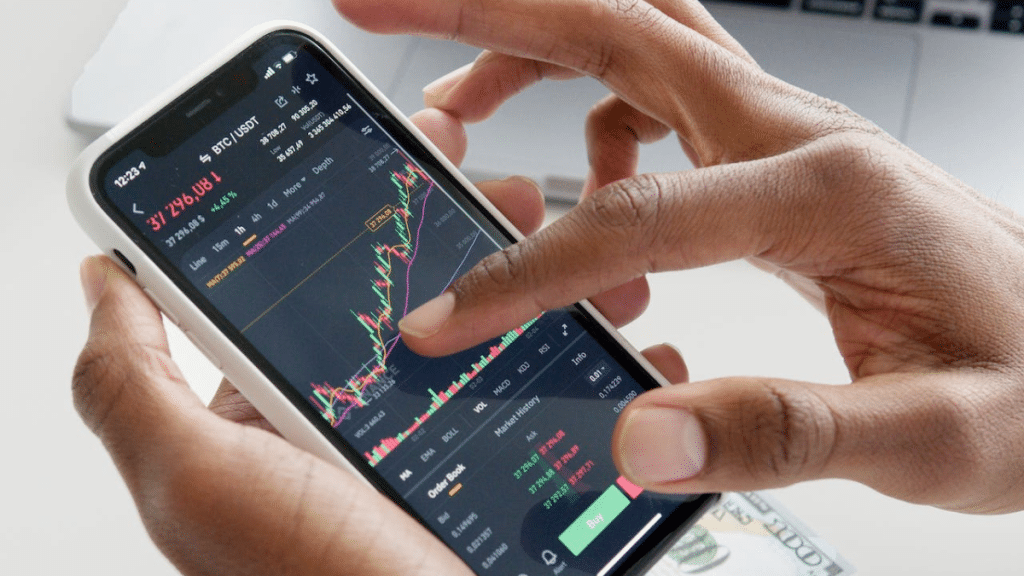The global oil industry is an intricate web of transactions and negotiations, with billions of barrels of oil traded daily. Advanced oil trading methods have become increasingly crucial in navigating this complex landscape. In this article, we delve deep into the subject of advanced oil trading, exploring how it differs from traditional methods, the importance of risk management, the role of algorithmic trading, geopolitical considerations, sustainable practices, and the future of this dynamic field. If you’re intrigued by the idea of trading oil, taking a closer look at the Oil Edge Revolution could prove to be a beneficial move as you explore this potential opportunity.
Traditional vs. Advanced Oil Trading
Conventional Oil Trading Practices
Traditional oil trading methods have been the backbone of the industry for decades. They involve physical contracts, long-term supply agreements, and bilateral negotiations. These methods often rely heavily on human intuition and relationships.
Limitations of Traditional Methods
While traditional methods have served the industry well, they come with limitations. They are often slow, lack transparency, and are vulnerable to market volatility. Additionally, these methods can struggle to adapt to rapidly changing global dynamics.
Advantages of Advanced Trading Techniques
Advanced oil trading techniques leverage technology and data-driven strategies. They offer real-time market insights, automated execution, and improved risk management. Traders using advanced methods are better equipped to make informed decisions and react swiftly to market changes.
Risk Management in Oil Trading
Understanding Risk Factors
Oil markets are influenced by a myriad of risk factors, including geopolitical tensions, supply and demand fluctuations, and currency exchange rates. Effective risk management is crucial for minimizing losses and maximizing profits.
Hedging Strategies
One of the cornerstones of advanced oil trading is hedging. Hedging involves using financial instruments like futures and options to protect against adverse price movements. Traders can lock in prices or limit potential losses, providing stability in an unpredictable market.
Case Studies in Risk Management
Examining real-world examples of risk management in oil trading, such as how major oil companies navigated price crashes or supply disruptions, can provide valuable insights into effective strategies.
Algorithmic Trading in Oil Markets
Introduction to Algorithmic Trading
Algorithmic trading involves using computer programs to execute trading strategies automatically. In oil markets, algorithms analyze vast datasets and execute trades at lightning speed, enabling traders to capitalize on even the smallest market inefficiencies.
Role of AI and Machine Learning
Artificial intelligence (AI) and machine learning have revolutionized oil trading. These technologies can process vast amounts of data to identify patterns and make predictions. Machine learning algorithms can adapt and improve their strategies over time, enhancing trading performance.
Geopolitical Considerations
Impact of Geopolitics
Geopolitical events, such as conflicts in oil-producing regions or sanctions on major oil exporters, can have a profound impact on oil prices. Understanding the geopolitical landscape is essential for successful oil trading.
Strategies for Navigating Geopolitical Risks
Traders must develop strategies to manage geopolitical risks effectively. This may involve diversifying suppliers, closely monitoring international news, and having contingency plans in place.
Case Studies in Geopolitical Events
Analyzing historical events like the Gulf War or the Arab Spring and their effects on oil markets illustrates the need for preparedness and adaptability in the face of geopolitical instability.
Sustainable Oil Trading Practices
Environmental and Ethical Concerns
As environmental awareness grows, ethical and environmental considerations play an increasingly significant role in oil trading. Traders are under pressure to adopt more sustainable practices and consider the environmental and social impacts of their decisions.
ESG Criteria in Trading
Environmental, Social, and Governance (ESG) criteria are becoming central to trading decisions. Investors and consumers alike are demanding transparency and accountability, pushing the industry toward greater sustainability.
Rise of Sustainable Trading
Sustainable trading practices, such as trading carbon credits or investing in renewable energy, are gaining traction. Traders who embrace sustainability are not only aligning with global trends but also mitigating long-term risks associated with fossil fuels.
The Future of Advanced Oil Trading
Emerging Trends and Technologies
The future of oil trading is marked by innovation. Technologies like blockchain for supply chain transparency, advanced data analytics, and even quantum computing are set to revolutionize the industry further.
Predictions for the Evolution
Experts predict that oil trading will become even more automated and data-driven. Strategies will focus on real-time market intelligence and adaptability to a rapidly changing energy landscape.
Preparing for Challenges and Opportunities
As the industry evolves, traders must adapt to new challenges and opportunities. This might involve upskilling in data analysis, staying informed about renewable energy markets, or embracing sustainable practices to stay competitive.
Conclusion
Within this in-depth exploration of advanced oil trading methods, we’ve unveiled a significant shift away from traditional practices toward data-driven strategies. We’ve highlighted the paramount importance of risk management, emphasized the pivotal role of algorithms, delved into the intricacies of geopolitical considerations, examined the growing influence of sustainability concerns, and painted a vivid picture of the exciting future that awaits the oil industry. As the global energy landscape continues its transformation, mastering these advanced oil trading techniques becomes not just advantageous but utterly critical for those looking to navigate this intricate and ever-evolving market successfully.

